Security Nuclear

What are the potential benefits and drawbacks of nuclear power in terms of climate change and energy security ?
Potential Benefits of Nuclear Power: - Low carbon emissions during operation, contributing to climate change mitigation. - High energy density of uranium enhances energy security by reducing reliance on imported fuels. - Ability to provide stable baseload power ensures reliability and energy security. Potential Drawbacks of Nuclear Power: - Significant GHG emissions from mining, refining uranium, plant construction, and decommissioning. - Long-lived radioactive waste poses challenges for climate change mitigation and environmental safety. - Risk of meltdowns and nuclear proliferation undermines energy security.
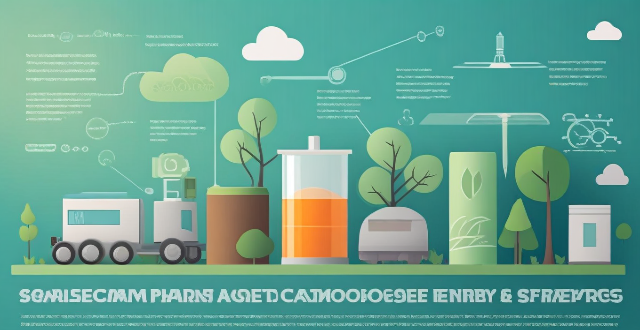
What role can nuclear power play in providing alternative energy solutions ?
Nuclear power is a low-carbon energy source that can contribute significantly to providing alternative energy solutions. It offers several advantages, such as low carbon emissions, high energy density, diverse fuel sources, waste management capabilities, economic benefits, job creation, and energy security. With its potential to reduce carbon emissions and mitigate climate change, nuclear power can play a crucial role in meeting our energy needs while also contributing to environmental sustainability.
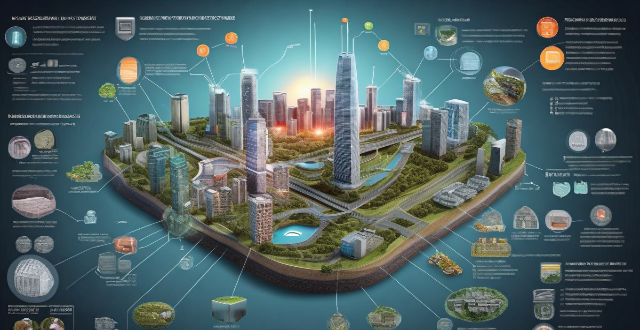
What is the future of nuclear energy in the energy market ?
The future of nuclear energy is promising, as it has advantages such as low carbon emissions, high energy density and baseload power. However, challenges like safety concerns, waste disposal, and high costs must be addressed. Increasing demand for clean energy, advances in technology, and integration with renewable sources can drive the growth of nuclear energy in the future.

How does the use of nuclear energy impact radiation levels in the environment and what measures are taken to mitigate this ?
This article discusses the impact of nuclear energy on radiation levels in the environment, highlighting the release of radioactive materials through air emissions, liquid discharges, and solid waste disposal. It also outlines mitigation measures taken at different stages of the nuclear fuel cycle, including design and construction, operation and maintenance, waste management, and decommissioning and site restoration. The article emphasizes that significant measures are taken to ensure the safe and reliable use of nuclear energy as a source of power.

What are some emerging technologies or materials being developed for improved radiation protection ?
This article discusses various emerging technologies and materials being developed to improve radiation protection, including advanced shielding materials like nanomaterials and metal-organic frameworks (MOFs), smart detection systems for real-time monitoring and machine learning-powered analysis of radiation levels, personal protective equipment (PPE) such as next-generation spacesuits and radiation-resistant clothing, medical countermeasures like radioprotectants and gene therapy, and nuclear waste management solutions like Synroc and glassification. These advancements aim to enhance safety and security in environments where radiation is a concern, across sectors such as nuclear power generation, medical applications, space exploration, and nuclear waste management.
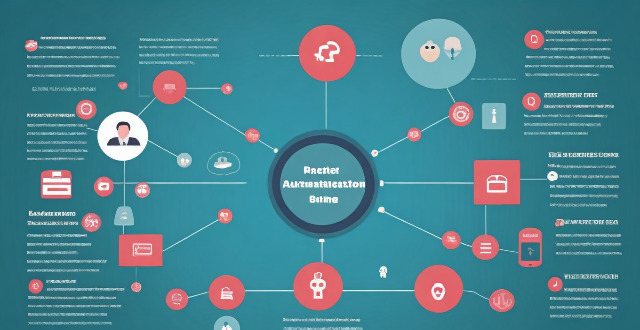
How does two-factor authentication enhance security ?
Two-factor authentication (2FA) is a security process that requires two different factors to verify the user's identity, enhancing security by reducing the risk of unauthorized access, providing alerts for suspicious activities, protecting against various types of attacks, increasing user confidence in online services, and helping maintain compliance with security standards. Its implementation should be carefully planned considering both security requirements and user convenience.
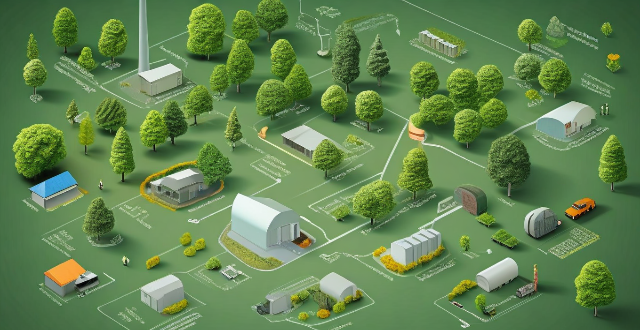
How can we ensure energy security while reducing greenhouse gas emissions ?
The text discusses a comprehensive strategy to ensure energy security while reducing greenhouse gas emissions. It outlines four main strategies: transitioning to renewable energy sources, implementing carbon pricing mechanisms, fostering international cooperation, and encouraging sustainable practices at all levels. The transition to renewable energy sources includes investing in infrastructure for solar, wind, hydroelectric, and geothermal power, promoting energy efficiency in buildings, transportation, and industries, and increasing research and development in clean energy technologies such as battery storage, nuclear fusion, and carbon capture and storage. Implementing carbon pricing mechanisms involves imposing taxes on fossil fuels and establishing cap-and-trade systems to limit greenhouse gas emissions from industries. Fostering international cooperation includes supporting global agreements like the Paris Agreement and sharing technology and resources with developing nations. Encouraging sustainable practices at all levels involves government policies and regulations, corporate social responsibility, and public awareness and education about the importance of energy conservation and reducing emissions. The text concludes that achieving energy security and reducing greenhouse gas emissions requires technological innovation, policy implementation, international cooperation, and cultural shifts towards sustainability.

Can you explain the concept of "radiation shielding" and its importance in radiation protection ?
Radiation shielding plays a critical role in radiation protection by using materials to absorb or deflect harmful radiation, thus reducing exposure levels. This concept is essential in industries such as nuclear power generation, medical imaging, and space exploration, where high radiation levels pose risks. Radiation shielding is important for human health protection, safety in nuclear facilities, medical applications, space exploration, and environmental conservation. Various materials are used for radiation shielding, including lead, concrete, water, polyethylene, tungsten, and boron, each effective against specific types of radiation.

What are the security concerns related to Smart Grid Technology ?
Smart grid technology, which uses digital communication technologies to monitor and control the flow of electricity, offers benefits such as increased efficiency and reliability. However, there are security concerns that need to be addressed, including cyber attacks, data breaches, insider threats, physical security risks, and interdependencies with other critical infrastructures. It is essential to implement strong cybersecurity measures, strict access controls, and robust physical security protocols to protect the system's integrity and confidentiality.
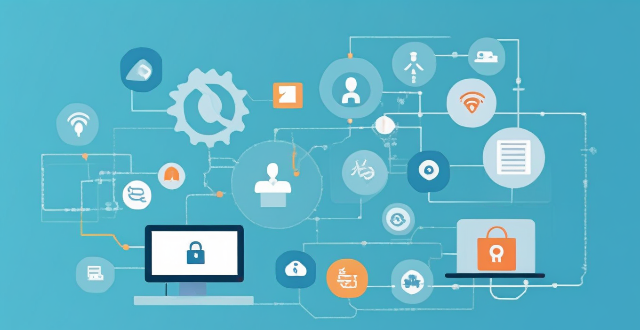
What are the security concerns related to IoT ?
The article discusses the major security concerns related to the Internet of Things (IoT), such as data privacy and confidentiality, device security, network security, physical security, and software vulnerabilities. It emphasizes the need for implementing appropriate security measures to ensure the secure deployment of IoT devices and protect sensitive information from unauthorized access.

What policies and technologies are needed to transition to a low-carbon energy system that ensures energy security ?
Policies and Technologies for Low-Carbon Energy Transition: To transition to a low-carbon energy system that ensures energy security, a combination of policies and technologies is required. Here are some key elements: Policies: Renewable Energy Targets: Governments should set ambitious targets for renewable energy generation and implement policies to support their achievement. Carbon Pricing: Implementing a carbon pricing mechanism, such as a carbon tax or cap-and-trade system, can help to internalize the external costs of fossil fuel use and make renewable energy more competitive. Energy Efficiency Standards: Setting minimum energy efficiency standards for appliances, buildings, and industrial processes can reduce energy demand and lower greenhouse gas emissions. Research and Development Funding: Investing in research and development for low-carbon technologies can help to drive innovation and bring down the cost of clean energy solutions. Electricity Market Reforms: Reforming electricity markets to better integrate variable renewable energy sources, such as wind and solar power, can improve grid stability and reliability while reducing emissions. Technologies: Renewable Energy Sources: Investing in renewable energy sources, such as solar, wind, hydro, geothermal, and biomass, is essential for decarbonizing the energy system. Energy Storage: Developing energy storage technologies, such as batteries, pumped hydro storage, or compressed air energy storage, can help to balance supply and demand in an increasingly renewable-powered grid. Smart Grids: Deploying smart grid technologies can improve the efficiency and flexibility of electricity systems, enabling better integration of distributed energy resources and demand response capabilities. Nuclear Power: While controversial, nuclear power can provide a low-carbon source of baseload electricity that complements variable renewable sources. Ensuring safety and waste management issues are addressed is crucial. Carbon Capture and Storage (CCS): CCS technology can capture CO2 emissions from fossil fuel power plants and store them underground, reducing overall greenhouse gas emissions from the power sector. Electric Vehicles (EVs): Promoting the adoption of electric vehicles can significantly reduce transportation-related emissions by replacing fossil fuel-powered vehicles with those powered by renewable electricity. Heat Pumps and District Heating: Heat pumps and district heating systems can provide efficient ways to heat buildings using renewable energy sources, reducing reliance on fossil fuels for heating needs.

How do firewalls contribute to network security ?
Firewalls are crucial for network security, offeringFirewalls are crucial for network security, offering, blocking unwanted connections, preventing preventing network intrusion, enforcing security policies, providing VPN support, integrating with other security systems, protecting against known threats, offering customizable features, ensuring scalability and performance, and reducing the risk of data breach.
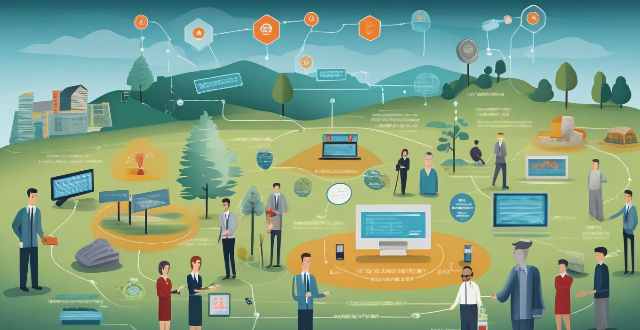
Can blockchain technology improve data security and privacy ?
Blockchain technology has been touted as a revolutionary tool that can improve data security and privacy. Its decentralized nature, encryption, and transparency make it difficult for attackers to compromise the network. Additionally, its anonymity, control over personal data, and smart contracts enhance privacy by giving individuals more control over their information.
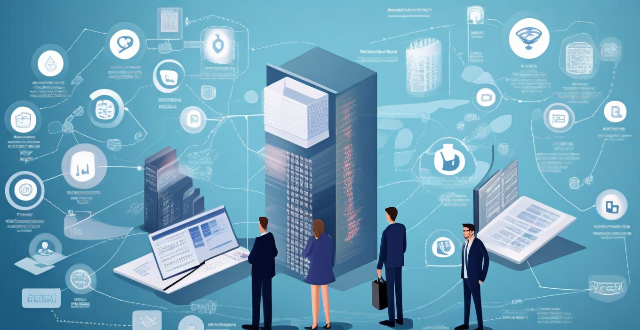
How do remote education platforms ensure data privacy and security ?
Remote education platforms ensure data privacy and security through encryption, access controls, two-factor authentication, regular security audits, and data retention policies. These measures help protect user data during transmission and storage, restrict access to sensitive information, add an extra layer of security, identify and fix vulnerabilities, and minimize the risk of data breaches.

How does climate change affect food security and nutrition ?
Climate change significantly impacts global food security and nutrition by causing extreme weather events, altering ecosystems, reducing water availability, affecting marine life, posing agricultural challenges, and diminishing nutrient intake. Mitigation strategies include sustainable agriculture practices, dietary diversification, and research and development to ensure future food security and nutrition.

What are some tips for getting through security quickly and efficiently ?
Getting through security quickly and efficiently requires preparation and knowledge. Pack smart by following the 3-1-1 rule for liquids, keeping electronics separate, storing medications in their original containers, and wearing easy-to-remove shoes and jackets. Know the rules by researching specific security policies, having travel documents ready, and avoiding restricted items. At the security checkpoint, prepare your belongings by placing metal objects in your carry-on bag and separating liquids. Follow procedures by staying alert, complying with instructions, and moving swiftly. After security, reorganize and regroup by repacking liquids and reassembling any removed accessories or outer layers. Stay informed about any updates to security procedures before your next trip.

What are the latest trends in network security protection ?
Network security is a crucial aspect of modern computing, and it's constantly evolving to keep up with new threats. Here are some of the latest trends in network security protection: - AI and ML are becoming increasingly popular for detecting and responding to cyber threats. - IoT devices have poor security features or lack them altogether, making them easy targets for hackers. - With more businesses moving to the cloud, ensuring data is secure is essential. - Threat intelligence involves collecting information about potential threats and using it to improve defenses. - The zero trust model assumes that no one should be trusted by default, including those within an organization's network.

What are the main threats to communication security ?
The text discusses the main threats to communication security, which include eavesdropping and unauthorized access, malware and viruses, social engineering and phishing, insider threats, and DoS attacks. It also provides mitigation strategies for each threat, such as encryption, secure networks, physical security, antivirus software, firewalls, software updates, awareness training, email filters, multi-factor authentication, access controls, monitoring and auditing, termination procedures, rate limiting, content delivery networks (CDNs), and intrusion detection systems (IDS).

What are the potential impacts of climate conflicts on global security ?
Climate conflicts have the potential to significantly impact global security by causing economic disruption, political instability, and even armed conflict. Governments and international organizations must recognize this issue and take action to mitigate the effects of climate change.

What are some examples of how climate change has affected international security ?
Climate change has significant implications for international security, including resource scarcity and competition, displacement and migration, state fragility and failed states, environmental refugees, and national security threats. These challenges require global cooperation and strategic planning to mitigate their effects on international stability.

Does restrictive immigration policy improve national security ?
The text discusses the complex question of whether restrictive immigration policy enhances national security. It explores various aspects including economic impact, social cohesion, international relations, and internal security dynamics to provide a nuanced understanding. The text concludes that while a restrictive immigration policy might seem appealing from a national security standpoint, it is not a silver bullet, as benefits must be weighed against potential negative impacts on different factors. A balanced approach that ensures thorough vetting without undue restrictions might prove more effective in enhancing national security in the long term.

Can I retire early without jeopardizing my financial security ?
Retiring early is a goal for many, but it requires careful planning to ensure financial security. Key steps include assessing your current finances, setting clear retirement goals, creating a comprehensive plan, and seeking professional advice. By following these strategies, you can achieve early retirement without jeopardizing your financial well-being.
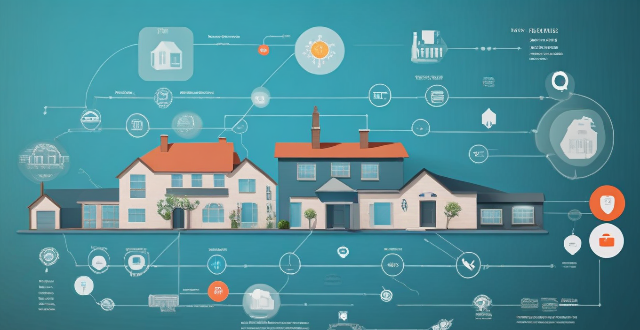
How much does a good home security system cost ?
The cost of a good home security system depends on various factors, including the type of system, features, installation fees, and monitoring services. While DIY systems are generally less expensive, professionally installed systems offer more advanced features and peace of mind through professional monitoring. When choosing a home security system, consider your specific needs and budget to find the best solution for your property.

What are the latest trends in cyber security ?
The text discusses the latest trends in cyber security, highlighting the following key points: 1. Ransomware attacks are becoming more frequent and can cause significant downtime and financial losses for businesses. Prevention is essential, with regular backups and employee training being crucial components of a robust defense strategy. 2. As more businesses move their operations to the cloud, ensuring the security of cloud-based systems has become a major concern. Cloud providers typically offer a range of security measures, but it is up to individual businesses to ensure that these measures are properly implemented and maintained. 3. The proliferation of connected devices has created new opportunities for cybercriminals to launch attacks. Many IoT devices lack adequate security features, making them easy targets for hackers looking to gain access to networks or steal sensitive data. 4. AI and ML technologies are becoming increasingly important tools in the fight against cybercrime, helping organizations identify and respond to potential threats more quickly and effectively than ever before. However, these technologies also create new opportunities for attackers to launch more sophisticated attacks or evade traditional defenses.

How does encryption contribute to network security protection ?
Encryption is pivotal for network security, offering robust defense against unauthorized data access and cyber threats. It transforms readable plaintext into ciphertext using sophisticated algorithms, protecting data at rest, in transit, or being processed. Encryption's economic impact is significant, with organizations leveraging it reducing financial impact of data breaches by over USD 220,000. The global encryption software market is projected to hit USD 20.1 billion by 2025. Regulatory compliance and standards are increasingly requiring encryption for data privacy and security. Its historical significance dates back to ancient civilizations, evolving from wartime secrecy to everyday data protection. Network security objectives include preventing unauthorized access, detecting and interrupting cyberattacks, and ensuring authorized user access. Data breaches have costly consequences, with the global average cost standing at USD 4.45 million per incident. A defense in depth approach involves layering multiple security controls between attackers and potential vulnerabilities. In conclusion, encryption is an indispensable component of network security protection, offering a robust defense against unauthorized data access and cyber threats. Its ability to transform plaintext into ciphertext, compliance with regulatory standards, and evolving sophistication through AI illustrate its dynamic role in safeguarding digital communications. For individuals and organizations alike, investing in encryption is not just a recommendation but a necessity for safeguarding against the ever-growing landscape of cyber threats.